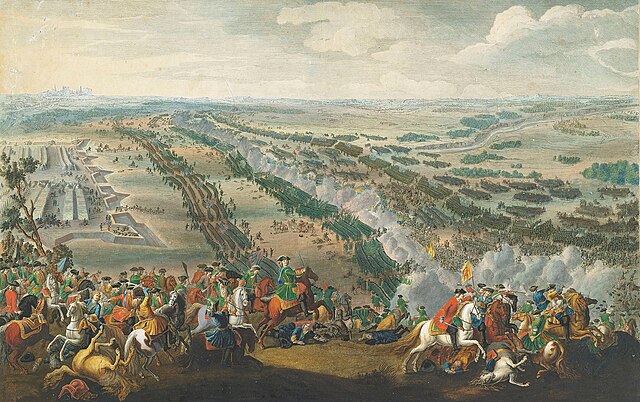Surrender, in military terms, is the relinquishment of control over territory, combatants, fortifications, ships or armament to another power. A surrender may be accomplished peacefully or it may be the result of defeat in battle. A sovereign state may surrender following defeat in a war, usually by signing a peace treaty or capitulation agreement. A battlefield surrender, either by individuals or when ordered by officers, normally results in those surrendering becoming prisoners of war.
House of Nasrid surrenders to Spain: Boabdil gives the Granada key to Ferdinand and Isabella.
Representatives on board the USS Missouri to effect Japan's unconditional surrender at the end of World War II
Lt. Gen. A. A. K. Niazi signing the Pakistani Instrument of Surrender in Dhaka on 16 Dec 1971, following India's victory in the 1971 Indo-Pakistani War
Allied troops surrender to Japanese troops in Singapore, during WW2.
A battle is an occurrence of combat in warfare between opposing military units of any number or size. A war usually consists of multiple battles. In general, a battle is a military engagement that is well defined in duration, area, and force commitment. An engagement with only limited commitment between the forces and without decisive results is sometimes called a skirmish.
Finnish soldiers on the Raate Road during the Winter War
The Battle of Poltava between Russia and Sweden, by Denis Martens the Younger
Battle Scene-Detail from Deccan miniature painting, c. 19th century
The Battle of Scheveningen of 1653: episode from the First Anglo-Dutch War.








